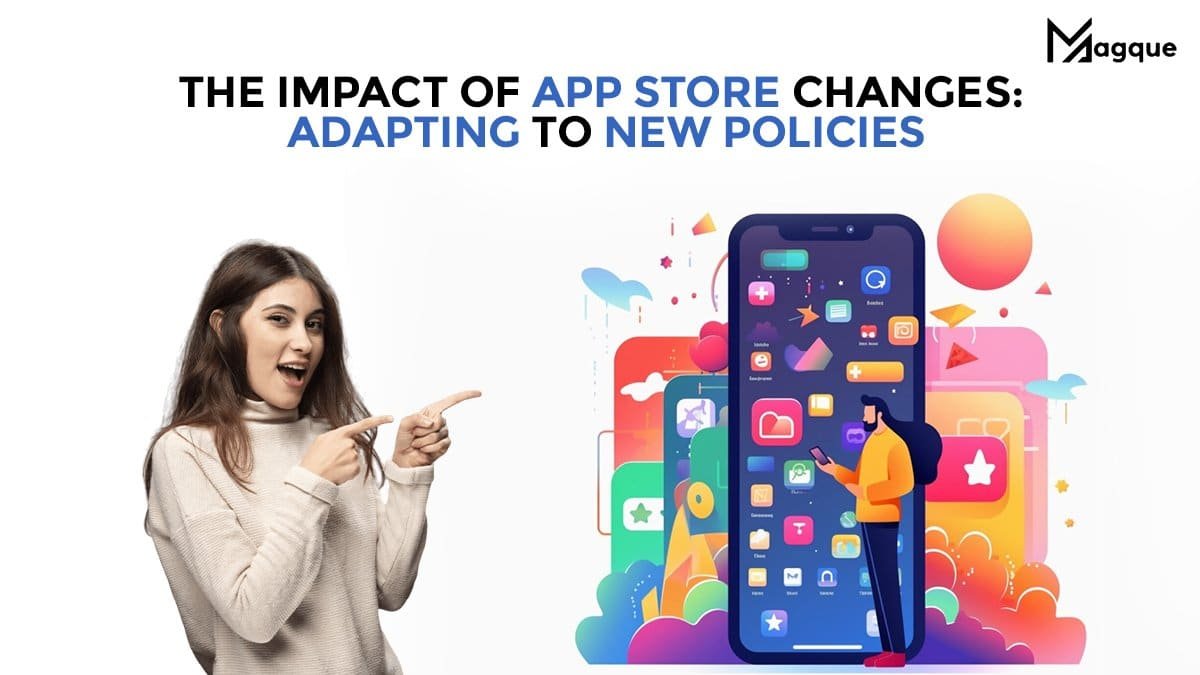Hey there, tech enthusiasts and app aficionados! 📱 Are you ready to dive into the dynamic world of mobile apps and how they navigate the ever-evolving App Store policies? You’re in the right place because today, we will uncover the significant impact these changes have on businesses and what you can do to stay ahead of the curve.
The App Store Landscape: A Shifting Paradigm
Imagine the App Store as a bustling marketplace, constantly changing and adapting to new rules and regulations. Like any thriving marketplace, the App Store has its own guidelines and policies that aim to maintain fairness, security, and quality for developers and users.
However, as the saying goes, “Change is the only constant.” The App Store policies have been evolving, creating a perplexing situation for developers and businesses. These changes can often feel like a maze of rules and requirements, leading to bursts of confusion and uncertainty.
The Impact on Businesses
So, how are businesses affected by these policy changes? 🤔
- App Store Optimization (ASO) Challenges: With the App Store’s shifting algorithms, maintaining a high ranking for your app can be daunting. Burstiness in app rankings can be expected, making it crucial to adapt quickly to stay visible.
- User Data and Privacy: Recent policies have strongly emphasised user privacy. Businesses now need to handle user data carefully and implement transparent data practices, which can be perplexing when balancing data-driven strategies with compliance.
- Monetization Adjustments: Changes in in-app purchase rules can impact revenue streams. Businesses may need to rethink their monetization strategies to stay profitable while adhering to the new policies.
- Review and Approval Process: The app review process has become more stringent. This means developers must ensure their apps align with the latest policies, which can be confusing and time-consuming.
Adapting to the New Normal
Now, let’s talk about how businesses can adapt to these changes and thrive in the App Store ecosystem.
- Stay Informed: The first step in adapting is to stay informed. Keep a close eye on the official App Store guidelines and announcements. Join developer forums and communities to exchange insights and tips with fellow developers.
- Prioritize User Privacy: Embrace the new privacy-focused era. Make sure your data practices are transparent and compliant with regulations. Educate your users on how their data is used and ensure their trust in your app.
- ASO Strategies: Given the burstiness in app rankings, work on your App Store Optimization. Regularly update your keywords, visuals, and descriptions to match the evolving algorithm’s preferences.
- Diversify Monetization: Explore different revenue streams, such as in-app advertising or subscription models, to adapt to changing monetization policies.
- Quality Assurance: Invest in quality assurance to reduce the chances of rejections during the app review process. Ensure your app is free of bugs and follows the latest design trends.
In conclusion, the App Store changes may bring perplexity and burstiness. Still, they also present opportunities for innovation and growth. By staying informed, prioritizing user privacy, and adapting your strategies, you can survive and thrive in the App Store’s ever-changing landscape.And be sure to explore Magque, your go-to source for the latest and most intriguing updates in the realms of informative tips & reviews!
FAQs
Q1. What are the fundamental App Store policy changes affecting businesses?
Answer: App Store policy changes encompass user data privacy, in-app purchases, and app review processes. These changes impact how businesses operate within the App Store ecosystem.
Q2. How do App Store policy changes affect app rankings and visibility?
Answer: App Store policy changes can lead to bursts in app rankings, affecting visibility. Developers must adapt their App Store Optimization (ASO) strategies to maintain or improve their app’s visibility.
Q3. What steps can businesses take to ensure compliance with new App Store policies?
Answer: Businesses should prioritize user privacy, stay informed about policy updates, and ensure their apps adhere to the latest guidelines. Regularly reviewing and updating app content and features is crucial.
Q4. How can businesses balance user data collection for app improvement while respecting privacy regulations?
Answer: To strike the right balance, businesses should collect only essential user data, obtain explicit consent, and implement robust data protection measures. Transparency in data handling is critical.
Q5. What options do businesses have to adapt their monetization strategies to changing App Store policies?
Answer: Businesses can diversify their monetization models, exploring options like in-app advertising, subscriptions, or freemium models. Flexibility is essential to adapt to evolving policies.
Q6. Are there resources available to help businesses navigate App Store policy changes?
Answer: Yes, there are resources such as developer forums, community groups, and official documentation provided by the App Store. These resources offer guidance, updates, and support for businesses adjusting to new policies.
Read Also This:- Productivity Apps: Streamlining Work and Life













